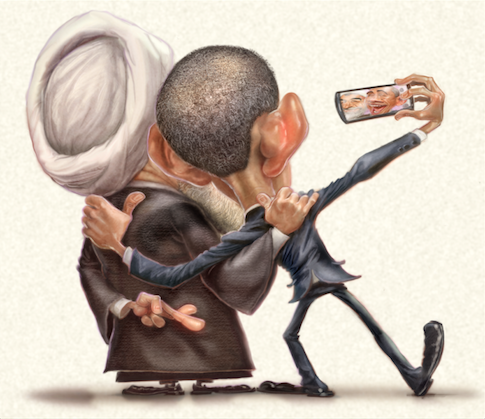Analysis: Iranian hard-liners are already saying that Tehran gave away too much
By YOSSI MELMAN/04/05/2015
Iran renewed its nuclear program at the tail end of its war with Iraq more than a quarter of a century ago. Approximately a decade ago Iran accelerated the program, and despite this, it still does not have a nuclear weapon.
Countries with less developed infrastructure and less advanced technological knowledge, such as Pakistan and North Korea, were able to build a nuclear weapon in five to seven years.
Thus, it can be concluded that Iran was afraid of making a bomb and remains so.
Iran did tirelessly endeavor to become a nuclear threshold state that would be a screwturn away from the ability to produce a bomb. In order to achieve this, it was willing to go very far, subjecting itself to painful, international sanctions and risking military repercussions.
It was all kosher in the eyes of the leadership, especially Supreme Leader Ayatollah Ali Khamenei. The leadership secretly established purchasing networks, schemed, concealed and blatantly lied. When its lies were exposed, Tehran hemmed and hawed, became more entangled, half-way confessed and went back on its tracks of lies. This behavior flew in the face of all of Iran’s international obligations to the International Atomic Energy Agency.
Iran eventually succeeded in its mission, establishing an advanced nuclear program, including two uranium enrichment facilities and a heavy water reactor to produce plutonium.
It enriched uranium to 20 percent and secretly held experiments to further enrich it to close to 93%, which would make it capable of being used to build a nuclear bomb. Tehran built underground facilities that would be harder to destroy and held secret experiments and simulations of nuclear chain reactions.
Iran already became a nuclear threshold state two years ago, just months away from a bomb. However, Tehran then gave way under the weight of the sanctions, which, together with the drop in oil prices, badly hurt the Iranian economy.
Khamenei changed his tune and agreed that his relatively moderate government could start negotiations on rolling back the nuclear program.
As far as Israel is concerned, it would be better if there was no deal and the sanctions would continue. However, it must be admitted that the deal achieved is reasonable. Iran is the party that made the most meaningful concessions. Iran wanted to retain outward signs of nuclear independence and did so at the cost of having its nuclear weapon breakout period pushed back to a year’s time.
It is forbidden from enriching uranium to more than 3.67%.
The number of its operational centrifuges will be cut in half to 5,000, of the old model, which are more than 40 years old. Iran cannot install or operate new centrifuges. Tehran’s stock of enriched uranium, enough to make five to six bombs, will be put under the supervision of the IAEA.
It cannot enrich uranium at the underground facility at Fordow, and can maintain some 2,000 centrifuges there. That is not enough to make fissionable material for nuclear weapons.
The heavy water reactor at Arak will be severely restricted and will not be capable of creating plutonium for a bomb. Iran will be subject to an intrusive inspection agreement.
However, there are holes in the framework deal: Will all of Iran’s uranium be shipped abroad? Will it be able to continue its centrifuge research? Will the sanctions be gradually lifted? This is not an agreement, but rather a generic framework of principles, whose implementation will be negotiated in complicated and stubborn talks until the end of June. The gaps are still wide. Each side interprets the principles a little differently and it is not at all clear if an agreement will be signed in the end.
This has already happened once before: In 2009, a deal was signed that was even supported by then-Iranian president Mahmoud Ahmadinejad. The hard-liners, backed by Khamenei, torpedoed that agreement.
In Iran, the voices of the conservatives and hard-liners that oppose the framework deal that has been reached are already being heard. They believe that Iran caved. An adviser of Khamenei described it best: We kept the reins, but gave away the horse.
Yossi Melman is an Israeli journalist and writer who specializes in security and intelligence affairs. He is co-author of Spies Against Armageddon: Inside Israel’s Secret Wars.
Visit Yossi Melman’s blog: www.israelspy.com




















